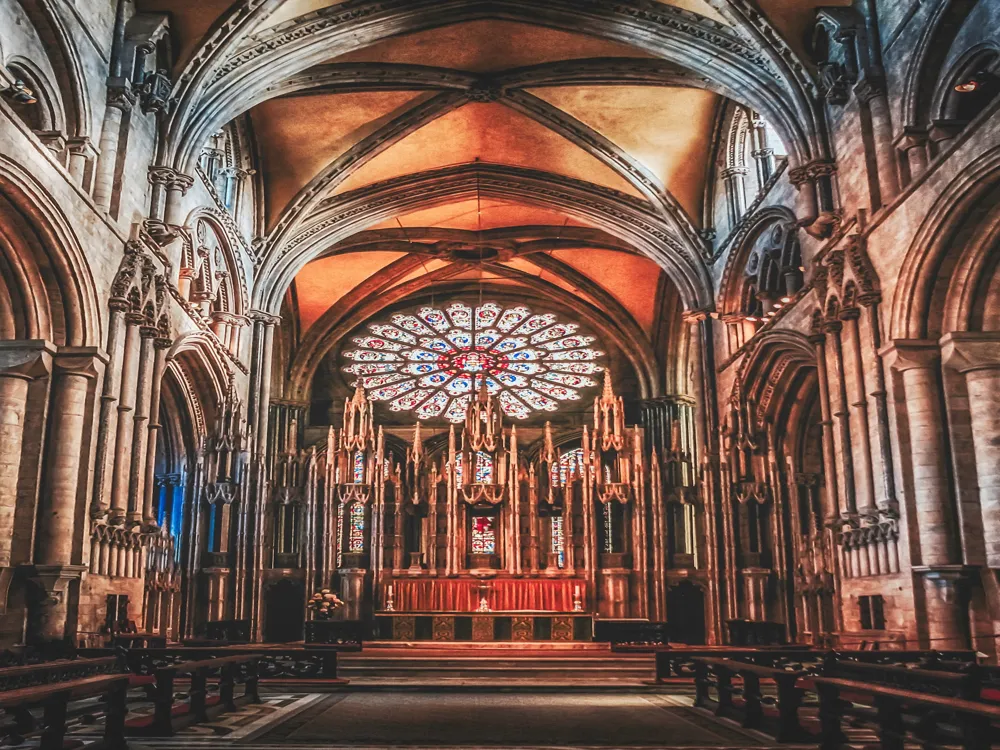Khonoma Village, located in the heart of Kohima, Nagaland, is a spectacular exemplar of indigenous culture and environmental conservation. This village, known as the first green village in India, stands as a testament to the commitment of the Angami Naga tribe towards preserving their rich heritage and natural surroundings. The history of Khonoma dates back over 700 years, showcasing a legacy of bravery, wisdom, and reverence for nature. Visitors to Khonoma are greeted by lush green terraces, intricately carved gates, and a serene atmosphere that pervades the village. The community's dedication to sustainable living is evident in their practices, such as jhum cultivation, which involves shifting ecologically balanced agriculture. Khonoma's unique approach to conservation, including a ban on hunting and logging, has led to a flourishing of biodiversity, making it a haven for various species of flora and fauna. The village's social structure is fascinating, with a strong emphasis on community and cooperative efforts. Traditional festivals and dances are an integral part of life in Khonoma, offering a glimpse into the rich tapestry of Naga culture. The villagers are known for their warm hospitality, treating visitors with immense respect and kindness, thus offering an enriching and authentic experience of Naga life. Khonoma Village's architecture is a beautiful blend of traditional Naga design and modern sustainability concepts. The houses in Khonoma are predominantly made of wood and bamboo, featuring thatched roofs that are typical of Naga architecture. These materials, sourced locally, reflect the village's commitment to living in harmony with nature. The homes are designed to withstand the hilly terrain and the region's climatic conditions, with elevated structures that offer protection against wildlife and the elements. The village is also known for its 'Morungs' or traditional youth dormitories, which play a crucial role in the social and cultural education of the young Nagas. These Morungs are intricately decorated with symbols and motifs that represent various aspects of Naga mythology and history. Each Morung is unique, showcasing the artistic skills and cultural narratives of the tribe. Another architectural marvel in Khonoma is the fortification system that once served as a defense mechanism against invaders. The remains of these fortifications, along with the village gates, are a reminder of the village's historical significance and the martial prowess of the Angami Nagas. It's crucial to show respect for the local customs and traditions of Khonoma. Visitors should dress modestly, avoid loud behavior, and seek permission before taking photographs of the locals or their properties. The ideal time to visit Khonoma is between October and May. During these months, the weather is pleasant, and the village is in full bloom, offering breathtaking views of the surrounding landscapes. Try the local cuisine, which is a blend of traditional Naga flavors. Dishes like smoked pork, bamboo shoots, and local greens are must-tries. However, visitors should be mindful of the spice levels and inquire about ingredients due to dietary restrictions. As Khonoma is an eco-friendly village, visitors should adhere to environmentally sustainable practices. This includes avoiding littering, using biodegradable materials, and respecting wildlife and natural resources. Khonoma Village is situated approximately 20 kilometers from the state capital, Kohima. The most common way to reach Khonoma is by road. Visitors can hire taxis or take public transport from Kohima to reach the village. The journey offers scenic views of the Naga hills and is an experience in itself. For those traveling from outside Nagaland, the nearest airport is in Dimapur, from where one can take a taxi or bus to Kohima and then proceed to Khonoma. Read More:Overview of Khonoma Village, Kohima, Nagaland
Architecture of Khonoma Village
Tips When Visiting Khonoma Village
Respect Local Customs and Traditions
Best Time to Visit
Local Cuisine
Eco-friendly Practices
How To Reach Khonoma Village
Khonoma Village
Kohima
Nagaland
NaN onwards
View kohima Packages
Weather :
Label : Must Visit
Tags : Village
Timings : Day time
Entry Fee : No entry fee
Planning a Trip? Ask Your Question
Kohima Travel Packages
View All Packages For Kohima
Top Hotel Collections for Kohima

Private Pool

Luxury Hotels

5-Star Hotels

Pet Friendly
Top Hotels Near Kohima
Other Top Ranking Places In Kohima
View All Places To Visit In kohima
View kohima Packages
Weather :
Label : Must Visit
Tags : Village
Timings : Day time
Entry Fee : No entry fee
Planning a Trip? Ask Your Question
Kohima Travel Packages
View All Packages For Kohima
Top Hotel Collections for Kohima

Private Pool

Luxury Hotels

5-Star Hotels

Pet Friendly





















